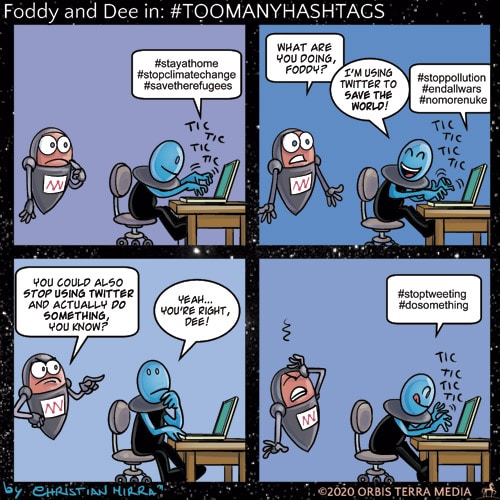Too Many Hashtags

It started with a single tweet and became one of the most talked-about controversies of the year.
When NFL superstar Colin Kaepernick posted the tweet: “Believe in something, even if it means sacrificing everything. #JustDoIt” , it kickstarted a boiling debate that took on some of the most hot-button topics in American life.
It also showed how a social media post can change the perception of your brand completely.
The face of a movement becomes the face of a brand
Kaepernick put his playing career on the line when, in 2016, he kneeled to the USA national anthem in a protest against racial inequality and the racial dimensions of police brutality.
He left the 49ers at the end of that season and wasn’t signed by another team.
At the start of the 2018/2019 season – the point at which he became the face of Nike’s campaign to celebrate the 30th anniversary of its “just do it” slogan – Kaepernick remained unsigned.
This background gave the seemingly innocuous tweet its shocking power: ‘Believe in something, even if it means sacrificing everything. #JustDoIt’.
The backlash
The campaign could – and did – go either way. US TV news showed videos of people threatening to burn their Nike sports shoes.
The hashtags #JustBurnIt and #BoycottNike began to trend on Twitter.
While hashtags do serve important purposes on your social media channels, the Nike experience illustrates the associated risks.
Could your own brand hashtags be misconstrued? Or invite unwelcome responses?
Why use a hashtag?
The reasons to use hashtags are well established. They make your posts more discoverable. They invite interaction. They help you align with trends. And they help you direct your communication to particular interest groups or communities.
According to Hubspot, adding one or more hashtags to an Instagram post will, on average, boost engagement with that post by 12.6%.
However, given the risks, is it important to track all the hashtags associated with your brand, so you can ensure they aren’t being misused and can respond appropriately.
Most importantly, your hashtags must cohere with your established brand values and identity. Your brand might be very strong on a hashtag, but if it doesn’t live up to the values you are endorsing, it could be more damaging than not using the hashtag at all.
The importance of authenticity
Before working with hashtags, research, testing and analysis is key. How can you leverage them? Which audiences do they reach? How do they reflect your company’s values? As with every aspect of your brand communication, authenticity is key.
Kaepernick has authenticity by the bucket load.
Responding to the controversy later, Nike founder Phil Knight explained the brand’s decision: ‘You can’t be afraid of offending people. You can’t go down the middle of the road. You have to take a stand on something.’
Nike understood its customers. It focused on its brand values. And it used a hashtag to great effect. Despite people threatening to burn their Nikes, the campaign delivered the brand $163 million in earned media value, a $6 billion increase to its brand value and a 31% boost to sales.
What can we learn from this? Know your customers. Forget the other noise; market to them. Authenticity is king.

